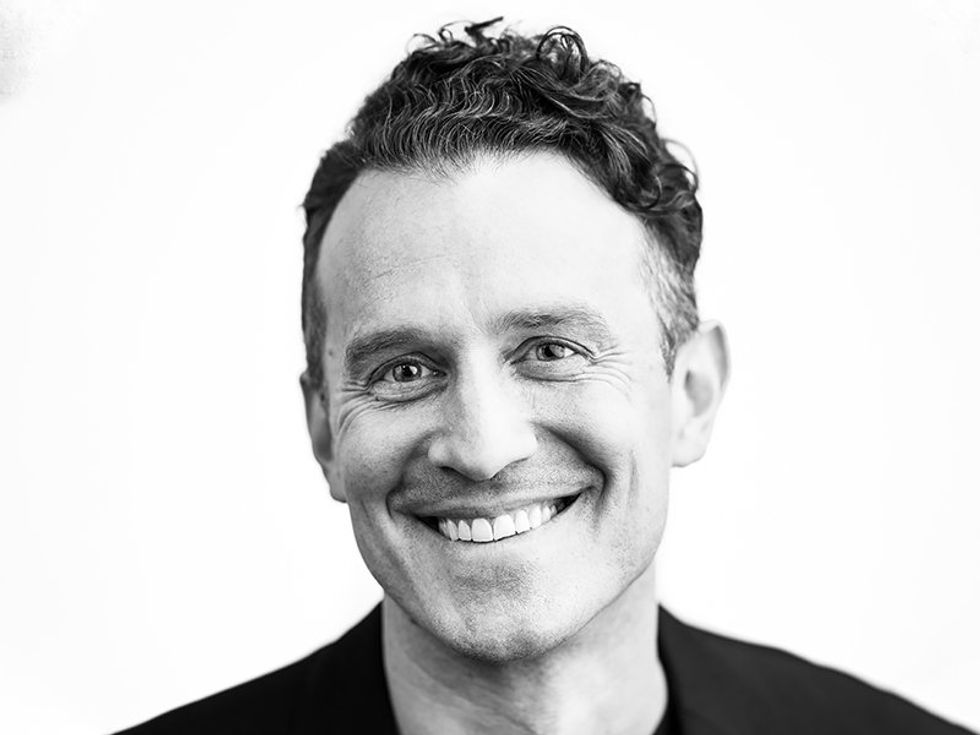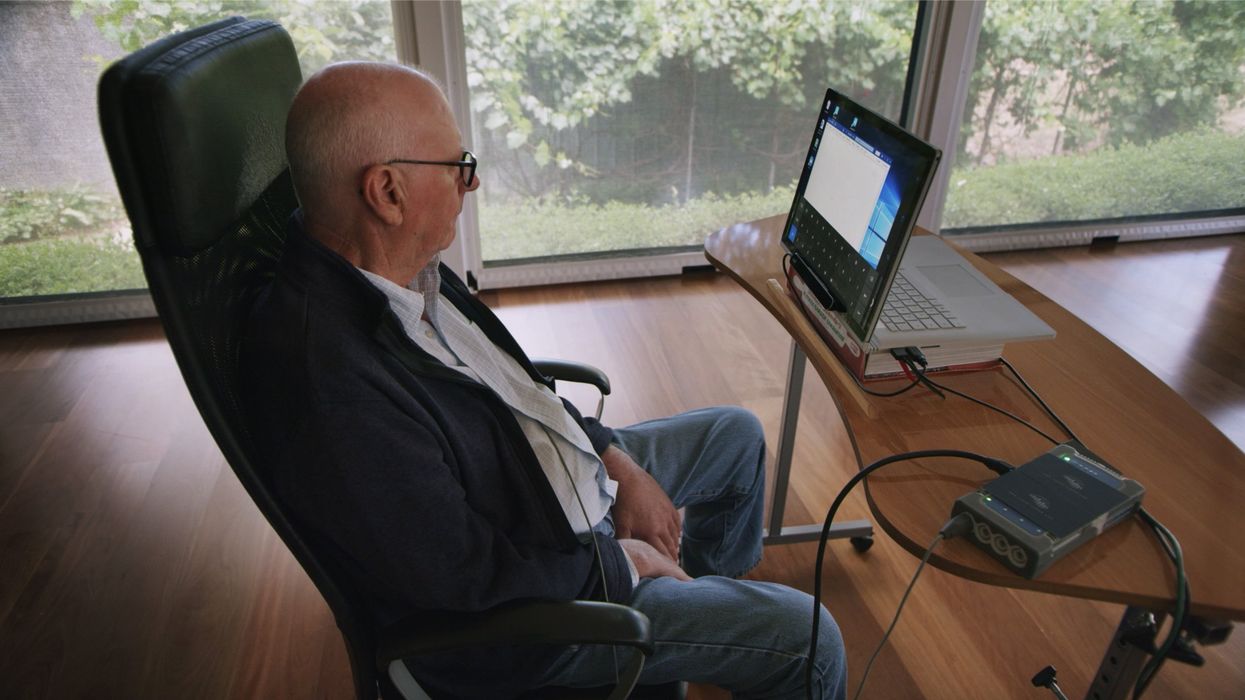Who Qualifies as an “Expert” And How Can We Decide Who Is Trustworthy?

Discerning a real expert from a charlatan is crucial during the COVID-19 pandemic and beyond.
This article is part of the magazine, "The Future of Science In America: The Election Issue," co-published by LeapsMag, the Aspen Institute Science & Society Program, and GOOD.
Expertise is a slippery concept. Who has it, who claims it, and who attributes or yields it to whom is a culturally specific, sociological process. During the COVID-19 pandemic, we have witnessed a remarkable emergence of legitimate and not-so-legitimate scientists publicly claiming or being attributed to have academic expertise in precisely my field: infectious disease epidemiology. From any vantage point, it is clear that charlatans abound out there, garnering TV coverage and hundreds of thousands of Twitter followers based on loud opinions despite flimsy credentials. What is more interesting as an insider is the gradient of expertise beyond these obvious fakers.
A person's expertise is not a fixed attribute; it is a hierarchical trait defined relative to others. Despite my protestations, I am the go-to expert on every aspect of the pandemic to my family. To a reporter, I might do my best to answer a question about the immune response to SARS-CoV-2, noting that I'm not an immunologist. Among other academic scientists, my expertise is more well-defined as a subfield of epidemiology, and within that as a particular area within infectious disease epidemiology. There's a fractal quality to it; as you zoom in on a particular subject, a differentiation of expertise emerges among scientists who, from farther out, appear to be interchangeable.
We all have our scientific domain and are less knowledgeable outside it, of course, and we are often asked to comment on a broad range of topics. But many scientists without a track record in the field have become favorites among university administrators, senior faculty in unrelated fields, policymakers, and science journalists, using institutional prestige or social connections to promote themselves. This phenomenon leads to a distorted representation of science—and of academic scientists—in the public realm.
Trustworthy experts will direct you to others in their field who know more about particular topics, and will tend to be honest about what is and what isn't "in their lane."
Predictably, white male voices have been disproportionately amplified, and men are certainly over-represented in the category of those who use their connections to inappropriately claim expertise. Generally speaking, we are missing women, racial minorities, and global perspectives. This is not only important because it misrepresents who scientists are and reinforces outdated stereotypes that place white men in the Global North at the top of a credibility hierarchy. It also matters because it can promote bad science, and it passes over scientists who can lend nuance to the scientific discourse and give global perspectives on this quintessentially global crisis.
Also at work, in my opinion, are two biases within academia: the conflation of institutional prestige with individual expertise, and the bizarre hierarchy among scientists that attributes greater credibility to those in quantitative fields like physics. Regardless of mathematical expertise or institutional affiliation, lack of experience working with epidemiological data can lead to over-confidence in the deceptively simple mathematical models that we use to understand epidemics, as well as the inappropriate use of uncertain data to inform them. Prominent and vocal scientists from different quantitative fields have misapplied the methods of infectious disease epidemiology during the COVID-19 pandemic so far, creating enormous confusion among policymakers and the public. Early forecasts that predicted the epidemic would be over by now, for example, led to a sense that epidemiological models were all unreliable.
Meanwhile, legitimate scientific uncertainties and differences of opinion, as well as fundamentally different epidemic dynamics arising in diverse global contexts and in different demographic groups, appear in the press as an indistinguishable part of this general chaos. This leads many people to question whether the field has anything worthwhile to contribute, and muddies the facts about COVID-19 policies for reducing transmission that most experts agree on, like wearing masks and avoiding large indoor gatherings.
So how do we distinguish an expert from a charlatan? I believe a willingness to say "I don't know" and to openly describe uncertainties, nuances, and limitations of science are all good signs. Thoughtful engagement with questions and new ideas is also an indication of expertise, as opposed to arrogant bluster or a bullish insistence on a particular policy strategy regardless of context (which is almost always an attempt to hide a lack of depth of understanding). Trustworthy experts will direct you to others in their field who know more about particular topics, and will tend to be honest about what is and what isn't "in their lane." For example, some expertise is quite specific to a given subfield: epidemiologists who study non-infectious conditions or nutrition, for example, use different methods from those of infectious disease experts, because they generally don't need to account for the exponential growth that is inherent to a contagion process.
Academic scientists have a specific, technical contribution to make in containing the COVID-19 pandemic and in communicating research findings as they emerge. But the liminal space between scientists and the public is subject to the same undercurrents of sexism, racism, and opportunism that society and the academy have always suffered from. Although none of the proxies for expertise described above are fool-proof, they are at least indicative of integrity and humility—two traits the world is in dire need of at this moment in history.
[Editor's Note: To read other articles in this special magazine issue, visit the beautifully designed e-reader version.]
Scientists experiment with burning iron as a fuel source
Sparklers produce a beautiful display of light and heat by burning metal dust, which contains iron. The recent work of Canadian and Dutch researchers suggests we can use iron as a cheap, carbon-free fuel.
Story by Freethink
Try burning an iron metal ingot and you’ll have to wait a long time — but grind it into a powder and it will readily burst into flames. That’s how sparklers work: metal dust burning in a beautiful display of light and heat. But could we burn iron for more than fun? Could this simple material become a cheap, clean, carbon-free fuel?
In new experiments — conducted on rockets, in microgravity — Canadian and Dutch researchers are looking at ways of boosting the efficiency of burning iron, with a view to turning this abundant material — the fourth most common in the Earth’s crust, about about 5% of its mass — into an alternative energy source.
Iron as a fuel
Iron is abundantly available and cheap. More importantly, the byproduct of burning iron is rust (iron oxide), a solid material that is easy to collect and recycle. Neither burning iron nor converting its oxide back produces any carbon in the process.
Iron oxide is potentially renewable by reacting with electricity or hydrogen to become iron again.
Iron has a high energy density: it requires almost the same volume as gasoline to produce the same amount of energy. However, iron has poor specific energy: it’s a lot heavier than gas to produce the same amount of energy. (Think of picking up a jug of gasoline, and then imagine trying to pick up a similar sized chunk of iron.) Therefore, its weight is prohibitive for many applications. Burning iron to run a car isn’t very practical if the iron fuel weighs as much as the car itself.
In its powdered form, however, iron offers more promise as a high-density energy carrier or storage system. Iron-burning furnaces could provide direct heat for industry, home heating, or to generate electricity.
Plus, iron oxide is potentially renewable by reacting with electricity or hydrogen to become iron again (as long as you’ve got a source of clean electricity or green hydrogen). When there’s excess electricity available from renewables like solar and wind, for example, rust could be converted back into iron powder, and then burned on demand to release that energy again.
However, these methods of recycling rust are very energy intensive and inefficient, currently, so improvements to the efficiency of burning iron itself may be crucial to making such a circular system viable.
The science of discrete burning
Powdered particles have a high surface area to volume ratio, which means it is easier to ignite them. This is true for metals as well.
Under the right circumstances, powdered iron can burn in a manner known as discrete burning. In its most ideal form, the flame completely consumes one particle before the heat radiating from it combusts other particles in its vicinity. By studying this process, researchers can better understand and model how iron combusts, allowing them to design better iron-burning furnaces.
Discrete burning is difficult to achieve on Earth. Perfect discrete burning requires a specific particle density and oxygen concentration. When the particles are too close and compacted, the fire jumps to neighboring particles before fully consuming a particle, resulting in a more chaotic and less controlled burn.
Presently, the rate at which powdered iron particles burn or how they release heat in different conditions is poorly understood. This hinders the development of technologies to efficiently utilize iron as a large-scale fuel.
Burning metal in microgravity
In April, the European Space Agency (ESA) launched a suborbital “sounding” rocket, carrying three experimental setups. As the rocket traced its parabolic trajectory through the atmosphere, the experiments got a few minutes in free fall, simulating microgravity.
One of the experiments on this mission studied how iron powder burns in the absence of gravity.
In microgravity, particles float in a more uniformly distributed cloud. This allows researchers to model the flow of iron particles and how a flame propagates through a cloud of iron particles in different oxygen concentrations.
Existing fossil fuel power plants could potentially be retrofitted to run on iron fuel.
Insights into how flames propagate through iron powder under different conditions could help design much more efficient iron-burning furnaces.
Clean and carbon-free energy on Earth
Various businesses are looking at ways to incorporate iron fuels into their processes. In particular, it could serve as a cleaner way to supply industrial heat by burning iron to heat water.
For example, Dutch brewery Swinkels Family Brewers, in collaboration with the Eindhoven University of Technology, switched to iron fuel as the heat source to power its brewing process, accounting for 15 million glasses of beer annually. Dutch startup RIFT is running proof-of-concept iron fuel power plants in Helmond and Arnhem.
As researchers continue to improve the efficiency of burning iron, its applicability will extend to other use cases as well. But is the infrastructure in place for this transition?
Often, the transition to new energy sources is slowed by the need to create new infrastructure to utilize them. Fortunately, this isn’t the case with switching from fossil fuels to iron. Since the ideal temperature to burn iron is similar to that for hydrocarbons, existing fossil fuel power plants could potentially be retrofitted to run on iron fuel.
This article originally appeared on Freethink, home of the brightest minds and biggest ideas of all time.

How to Use Thoughts to Control Computers with Dr. Tom Oxley
Leaps.org talks with Dr. Tom Oxley, founding CEO of Synchron, a company that's taking a unique - and less invasive - approach to "brain-computer interfaces" for patients with ALS and other mobility challenges.
Tom Oxley is building what he calls a “natural highway into the brain” that lets people use their minds to control their phones and computers. The device, called the Stentrode, could improve the lives of hundreds of thousands of people living with spinal cord paralysis, ALS and other neurodegenerative diseases.
Leaps.org talked with Dr. Oxley for today’s podcast. A fascinating thing about the Stentrode is that it works very differently from other “brain computer interfaces” you may be familiar with, like Elon Musk’s Neuralink. Some BCIs are implanted by surgeons directly into a person’s brain, but the Stentrode is much less invasive. Dr. Oxley’s company, Synchron, opts for a “natural” approach, using stents in blood vessels to access the brain. This offers some major advantages to the handful of people who’ve already started to use the Stentrode.
The audio improves about 10 minutes into the episode. (There was a minor headset issue early on, but everything is audible throughout.) Dr. Oxley’s work creates game-changing opportunities for patients desperate for new options. His take on where we're headed with BCIs is must listening for anyone who cares about the future of health and technology.
Listen on Apple | Listen on Spotify | Listen on Stitcher | Listen on Amazon | Listen on Google
In our conversation, Dr. Oxley talks about “Bluetooth brain”; the critical role of AI in the present and future of BCIs; how BCIs compare to voice command technology; regulatory frameworks for revolutionary technologies; specific people with paralysis who’ve been able to regain some independence thanks to the Stentrode; what it means to be a neurointerventionist; how to scale BCIs for more people to use them; the risks of BCIs malfunctioning; organic implants; and how BCIs help us understand the brain, among other topics.
Dr. Oxley received his PhD in neuro engineering from the University of Melbourne in Australia. He is the founding CEO of Synchron and an associate professor and the head of the vascular bionics laboratory at the University of Melbourne. He’s also a clinical instructor in the Deepartment of Neurosurgery at Mount Sinai Hospital. Dr. Oxley has completed more than 1,600 endovascular neurosurgical procedures on patients, including people with aneurysms and strokes, and has authored over 100 peer reviewed articles.
Links:
Synchron website - https://synchron.com/
Assessment of Safety of a Fully Implanted Endovascular Brain-Computer Interface for Severe Paralysis in 4 Patients (paper co-authored by Tom Oxley) - https://jamanetwork.com/journals/jamaneurology/art...
More research related to Synchron's work - https://synchron.com/research
Tom Oxley on LinkedIn - https://www.linkedin.com/in/tomoxl
Tom Oxley on Twitter - https://twitter.com/tomoxl?lang=en
Tom Oxley TED - https://www.ted.com/talks/tom_oxley_a_brain_implant_that_turns_your_thoughts_into_text?language=en
Tom Oxley website - https://tomoxl.com/
Novel brain implant helps paralyzed woman speak using digital avatar - https://engineering.berkeley.edu/news/2023/08/novel-brain-implant-helps-paralyzed-woman-speak-using-a-digital-avatar/
Edward Chang lab - https://changlab.ucsf.edu/
BCIs convert brain activity into text at 62 words per minute - https://med.stanford.edu/neurosurgery/news/2023/he...
Leaps.org: The Mind-Blowing Promise of Neural Implants - https://leaps.org/the-mind-blowing-promise-of-neural-implants/

Tom Oxley

